Given an array of [Any] that has a mix of optional and non optional values, e.g:
let int:Int? = 1
let str:String? = "foo"
let values:[Any] = [int,2,str,"bar"]
How can we extract the value of the Optional in the Any type (if there is one) so we can create a generic print function that only prints out the values.
E.g. this printArray function goes through and prints each element:
func printArray(values:[Any]) {
for i in 0..<values.count {
println("value[\(i)] = \(values[i])")
}
}
printArray(values)
Which will output:
value[0] = Optional(1)
value[1] = 2
value[2] = Optional("foo")
value[3] = bar
How can we change it so it only prints the underlying value so that it unwraps the value if it's Optional? e.g:
value[0] = 1
value[1] = 2
value[2] = foo
value[3] = bar
Update Progress...
It can work when changing the argument to [Any?], e.g:
let values:[Any?] = [int,2,str,"bar"]
func printArray(values:[Any?]) {
for i in 0..<values.count {
println("value[\(i)] = \(values[i]!)")
}
}
printArray(values)
Which will print the desired:
value[0] = 1
value[1] = 2
value[2] = foo
value[3] = bar
But would still like to see how we can unwrap an Optional from Any as this is what MirrorType.value returns making it difficult to extract the Optional value, e.g:
class Person {
var id:Int = 1
var name:String?
}
var person = Person()
person.name = "foo"
var mt:MirrorType = reflect(person)
for i in 0 ..< mt.count {
let (name, pt) = mt[i]
println("\(name) = \(pt.value)")
}
Prints out:
id = 1
name = Optional("foo")
When I need:
id = 1
name = foo
